The Books That Have Shaped My Life
19 handpicked books that have impacted my worldview and helped me grow as a person and a professional.
👋 Welcome to The Influential Project Manager, a weekly newsletter covering the essentials of successful project leadership.
Today’s Overview:
Books can be the catalyst for personal and professional transformation. They open our minds to new perspectives, deepen our understanding, and inspire us to strive for better.
In my article 'The Books That Have Shaped My Life', I share with you the 19 books that have had the most profound impact on my life. Each book is broken down into a concise summary, my personal favorite quotes, and an explanation of the parts that influenced me the most, making it easier for you to identify the ones that resonate with your journey.
Whether you're seeking to elevate your mindset, acquire new skills, expand your horizons, or uncover your next captivating read, this list contains a treasure trove of good ideas.
The Books That Have Shaped My Life
Filed under: Learning & Growth
Books have been an important part of my life ever since my early twenties. Over the years, I have read 100’s of books on a variety of topics - from personal development to business strategy to spirituality.
People often ask me what books have impacted me the most throughout my life.
In this article, I want to answer those questions and provide you with some of the books that have impacted me the most throughout my career and life. Consider it an extensive but not exhaustive syllabus to improve your world.
Each of these books has provided me with valuable insights and lessons that have helped me grow as a person and as a professional. For each book, I am going to share with you:
Book summary
My favorite quotes
The most influential part
I hope you fall in love with these books as much as I did.
So, without further ado, here are 18 books that have shaped my life.
*Please note: I may receive payment for books purchased from the links below as part of an affiliate program.
1. The Four Agreements by Don Miguel Ruiz
‘The Four Agreements’ is a powerful self-help book that offers a code of conduct based on ancient Toltec wisdom. The book guides readers on a transformative journey to personal freedom, happiness, and spiritual growth by encouraging them to adopt the four agreements as guiding principles in their lives. These agreements are: Be Impeccable with Your Word, Don't Take Anything Personally, Don't Make Assumptions, and Always Do Your Best. Ruiz emphasizes that by embracing these principles, you can break free from self-limiting beliefs and behaviors, ultimately experiencing a more fulfilling life.
Favorite Quotes:
"Be impeccable with your word. Speak with integrity. Say only what you mean. Avoid using the word to speak against yourself or to gossip about others. Use the power of your word in the direction of truth and love."
"Don't take anything personally. Nothing others do is because of you. What others say and do is a projection of their own reality, their own dream. When you are immune to the opinions and actions of others, you won't be the victim of needless suffering."
"Always do your best. Your best is going to change from moment to moment; it will be different when you are healthy as opposed to sick. Under any circumstance, simply do your best, and you will avoid self-judgment, self-abuse, and regret."
Most Influential Part:
Arguably, the most influential part of The Four Agreements is the concept of not taking anything personally. This agreement taught me to detach from the opinions and actions of others, recognizing that people's behaviors are often a reflection of their own internal struggles and beliefs, rather than an accurate assessment of the individual in question. By not taking things personally, we can build emotional resilience and maintain a sense of self-worth, regardless of external circumstances. This new perspective has continuously led me to improved relationships, inner peace, and lasting personal growth.
📚 Get your copy of The Four Agreements here.
2. Extreme Ownership by Jocko Willink and Leif Babin
‘Extreme Ownership’ is a practical guide to leadership, drawing on the authors' experiences as Navy SEAL officers. The book explores the framework of "extreme ownership," emphasizing that effective leaders take full responsibility for their actions and the actions of their teams. Willink and Babin share real-life combat stories and translate them into actionable leadership principles that can be applied in any organization or situation. By embracing extreme ownership, leaders create a culture of accountability, improve decision-making, and ultimately drive success for their teams and organizations.
Favorite Quotes:
“Implementing Extreme Ownership requires checking your ego and operating with a high degree of humility. Admitting mistakes, taking ownership, and developing a plan to overcome challenges are integral to any successful team.”
"There are no bad teams, only bad leaders."
"Discipline equals freedom."
Most Influential Part:
This book changed my life and saved me career. The 2 most influential parts from 'Extreme Ownership' is the core principle itself – the concept of extreme ownership as well as the 4 Laws of Combat. Extreme Ownership challenged me to take full responsibility for my actions, decisions, and the performance of my teams, without shifting blame or making excuses. The 4 Laws of Combat are key principles for effective leadership in high-pressure situations which has proven to be a winning framework. The 4 laws are:
Cover and Move: Teams must work together and support each other to achieve a common goal.
Simple: Keep plans and communication simple to avoid confusion and ensure everyone understands their role.
Prioritize and Execute: Identify the most critical tasks, prioritize them, and tackle them one at a time to avoid being overwhelmed.
Decentralized Command: Empower leaders within the team to make decisions, ensuring a balance between centralized decision-making and decentralized execution.
📚 Get your copy of Extreme Ownership here.
3. The Dichotomy of Leadership: Balancing the Challenges of Extreme Ownership to Lead and Win
In ‘The Dichotomy of Leadership,’ Jocko, former Navy SEAL commander, shares his unique insights into the delicate balance leaders must strike to achieve success. Jocko talks about how leaders can navigate the fine line between opposing forces, such as discipline and freedom, confidence and humility, and leading and following. He offers actionable advice and practical strategies to help readers develop strong leadership qualities and make better decisions, both personally and professionally.
Favorite Quotes:
"The best leaders are not driven by ego or personal agendas. They are simply focused on the mission and how best to accomplish it."
"Balance is crucial for effective leadership; a leader who is too aggressive risks causing chaos, while one who is too passive might miss opportunities."
“Every behavior or characteristic carried out by a leader can be taken too far. Leaders can become too extreme and upset the balance required to effectively lead a team. When balance is lost, leadership suffers and the team’s performance rapidly declines.”
Most Influential Part:
The most influential takeaway from "The Dichotomy of Leadership" was the new found awareness of finding balance in leadership. I’ve observed this skill in great leaders before but could never put any words to it. Seeing it laid out this way in the book locked everything in. The book proves that leaders need to strike a delicate balance between seemingly opposing forces, such as “Own everything but empower others,” “Be resolute but not overbearing,” and “Be aggressive but not reckless,” in order to effectively guide their teams and achieve success.
📚 Get your copy of The Dichotomy of Leadership here.
4. The 7 Habits of Highly Effective People by Stephen R. Covey
'The 7 Habits of Highly Effective People' is a timeless self-improvement book that has helped millions of readers worldwide achieve personal and professional success. Covey introduces seven principles, or habits, that when practiced consistently, can transform an individual's life and create lasting change. These habits are: Be Proactive, Begin with the End in Mind, Put First Things First, Think Win-Win, Seek First to Understand, Then to Be Understood, Synergize, and Sharpen the Saw. By building these habits, one can develop a strong character, improve their relationships, and become more effective in their personal and professional lives.
Favorite Quotes:
“To begin with the end in mind means…to begin each day with [our] values firmly in mind. Then as the challenges come, I can make my decisions based on those values. I can act with integrity. I don’t have to react to the emotion, the circumstance. I can be truly proactive, value driven, because my values are clear.”
“Really seeking to understand another person is probably one of the most important deposits you can make, and it is the key to every other deposit.”
“How different our lives are when we really know what is deeply important to us, and keeping that picture in mind, we manage ourselves each day to be and to do what really matters most.”
Most Influential Part:
One of the most influential parts of this book is the habit of "Begin with the End in Mind" and it has stuck with me ever since. This habit encourages people to envision their desired future and to create a roadmap for achieving their goals (reverse engineering). After reading this book, I was able to start clearly defining my values, purpose, and vision. From there it was 100x easier to align all of my actions and decisions to match my long-term objectives. This one habit lays the foundation for personal and professional success, allowing people to create a life of purpose and direction.
📚 Get your copy of The 7 Habits of Highly Effective People here.
5. How To Win Friends & Influence People by Dale Carnegie
How to Win Friends & Influence People by Dale Carnegie, first published in 1936, is a timeless self-help book that offers practical advice on building relationships and navigating social situations. The book is divided into four main sections: Fundamental Techniques in Handling People, Six Ways to Make People Like You, How to Win People to Your Way of Thinking, and Be a Leader: How to Change People Without Giving Offense or Arousing Resentment. Throughout the book, Carnegie shares his insights and wisdom on effective communication, understanding human nature, and the art of persuasion.
Favorite Quotes:
"You can make more friends in two months by becoming interested in other people than you can in two years by trying to get other people interested in you."
“To be interesting, be interested.”
"One reason why birds and horses are not unhappy is because they are not trying to impress other birds and horses."
“When dealing with people, let us remember we are not dealing with creatures of logic. We are dealing with creatures of emotion, creatures bristling with prejudices and motivated by pride and vanity.”
Most Influential Part:
One of the most influential parts of the book is Carnegie's concept of genuinely being interested in other people. He advocates that to win friends and influence people, we must shift our focus from ourselves and take an authentic interest in the lives, experiences, and perspectives of those around us. This approach has continuously helped me build rapport and trust with people, which has led to many meaningful relationships and opportunities. Winning other people over is an incredibly valuable skill in all aspects of life. Next time you are meeting someone new, pick one of the strategies in this book and apply it.
📚 Get your copy of How to Win Friends & Influence People here.
6. The Obstacle Is The Way: The Timeless Art of Turning Trails into Triumph by Ryan Holiday
'The Obstacle is The Way is an inspiring book that teaches readers how to harness the power of adversity and transform challenges into opportunities for growth. Drawing from the principles of Stoic philosophy and stories of historical figures, the book offers a practical framework for overcoming obstacles and achieving success. By focusing on perception, action, and will, readers can learn to view their problems from a different perspective, take decisive action, and cultivate inner resilience. Through this approach, Holiday encourages readers to embrace life's challenges and use them as catalysts for personal development and success.
Favorite Quotes:
"The impediment to action advances action. What stands in the way becomes the way."
"There is no good or bad without us; there is only perception. There is the event itself and the story we tell ourselves about what it means."
"In the process of working through our obstacles, we also learn a lot about ourselves."
Most Influential Part:
One of the most influential parts of The Obstacle is The Way is the emphasis on the power of perception. I learned how to see adversity and challenges as an opportunity, not an obstacle. Ryan asserts that our perception of events and circumstances significantly influences our ability to overcome obstacles. By re-framing challenges as opportunities for growth, we can transform our mindset and develop the necessary resilience to push through adversity. This shift in perspective enabled me to view setbacks as valuable learning experiences and empowered me to face problems head-on. The idea of changing one's perception to overcome obstacles is a massive unlock for personal and professional growth.
📚 Get your copy of The Obstacle Is The Way here.
7. The True Competitive Advantage: A Practical Guide to Achieving Extraordinary Success through Deep Relationships by Dan Silvert
In The True Competitive Advantage, Dan Silvert draws on his expertise as an executive coach and strategic advisor to demystify the workplace behaviors of your colleagues using four colorful metaphors—Eagle, Parrot, Dove, and Owl. Dan shows how to easily identify each bird type and predict how they are likely to behave in a wide range of workplace situations. This knowledge empowers leaders to communicate effectively, motivate individuals, resolve conflicts, and create a collaborative work environment that supports both individual growth and overall team success.
Favorite Quotes:
"To create a true competitive advantage, match the moment, not the mirror. Respect your cohort’s differences and lean in their direction. By understanding the roots of others’ behavior and adapting your own action to match them, you can clear away their resistance. Collaboration becomes easier."
"By adjusting your behavior toward the styles of others, you become a catalyst in facilitating their greatest contributions, which is the essence of leadership. Leadership is not a title; it’s a decision. No matter where you are in your career, you can think and act like a leader by facilitating the genius of other people."
Most Influential Part:
The most influential part of this book was how the infamous DISC behavioral framework was slightly re-framed as Eagles (D), Parrots (I), Doves (S), and Owls (C). These useful metaphors revealed themselves as memorable representations of the four DISC styles. The natural tendencies each of these mammals were easy to understand and translate to human nature. The in-depth analysis of each bird type, highlighting the strengths and challenges has been incredibly powerful for improving my relationships as well as increased my awareness of my own behavioral style. This newfound knowledge has gifted me the ability to get quick reads on people’s natural behavior so I can tailor my approach on the fly.
📚 Get your copy of The True Competitive Advantage here.
8. The Lean Builder: A Builder’s Guide to Applying Lean Tools in the Field by Joe Donarumo & Keyan Zandy
'The Lean Builder: A Builder's Guide to Applying Lean Tools in the Field' is a practical and insightful guide for construction professionals seeking to implement lean principles on their projects. The authors, both experienced construction industry veterans, provide real-world examples and actionable advice on how to apply lean tools and methodologies to streamline processes, eliminate waste, and improve overall project outcomes. By focusing on the Last Planner System, constraint management, and visual management, the book offers a comprehensive and easy-to-follow roadmap for construction professionals to achieve greater efficiency, productivity, and profitability in their projects.
Favorite Quotes:
“Lean is not about working harder; it's about working smarter."
"The Last Planner System is a pull-based approach to project management that emphasizes collaboration, commitment, and continuous improvement."
"When it comes to lean construction, it is essential to have a mindset of always seeking better ways to do things."
Most Influential Part:
One of the most influential parts of 'The Lean Builder' is its focus on the Last Planner System. I now say LPS is they key to making project execution your unfair career advantage. This system provides a practical and collaborative approach to project management, which emphasizes communication, commitment, and continuous improvement among team members. By implementing the Last Planner System, construction professionals can better plan and execute their projects, identify and remove constraints, and create a more predictable and reliable workflow. This powerful project management tool has been instrumental in optimizing my project outcomes and increasing client satisfaction.
📚 Get your copy of The Lean Builder here.
9. Sapiens: A Brief History of Humankind by Yuval Noah Harari
'Sapiens: A Brief History of Humankind' is a groundbreaking book that dives into the history of the human species from the emergence of Homo sapiens in Africa to the present day. Harari explores the development of human societies, cultures, and civilizations through the lens of biology, anthropology, and history. He covers the significant milestones in human history, including the Cognitive Revolution, Agricultural Revolution, and the emergence of the modern world. While examining the interconnections of these events, Harari provides a thought-provoking analysis of the factors that have shaped our species and the world we live in today.
Favorite Quotes:
"History is something that very few people have been doing while everyone else was plowing fields and carrying water buckets."
"We did not domesticate wheat. It domesticated us."
"The greatest conquerors in the world, the only ones who have left an indelible mark on history, are the conquerors of the mind."
Most Influential Part:
One of the most influential parts of 'Sapiens' is Harari's discussion of the Cognitive Revolution. He argues that the ability to think, communicate, and cooperate in complex ways is what truly sets Homo sapiens apart from other species. This cognitive leap enabled our ancestors to create and share ideas, beliefs, and stories, which in turn led to the development of human societies, cultures, and civilizations. His analysis of the Cognitive Revolution highlights the power of shared myths and narratives in shaping human history. I found myself taking a lot from this book which informed how I saw the world without obsessing over retaining everything. Makes for a fantastic Audible listen.
📚 Get your copy of Sapiens here.
10. The Way of The Superior Man by David Deida
'The Way of the Superior Man: A Spiritual Guide to Mastering the Challenges of Women, Work, and Sexual Desire' by David Deida is a classic insight into masculinity, the challenges of living as a male, what it means to be a man, and how you can grow spiritually while juggling all the other requirements of your life like work, women, and sexual desire. The book offers guidance to men on living authentically, cultivating deep relationships, and fulfilling their life's purpose. Despite its title, the book speaks as much about the nature of men as it does about the nature of women. There’s guaranteed to be a couple of mind blowing concepts which will cause a paradigm shift. A short read at around 200 pages.
Favorite Quotes:
“Without a conscious life-purpose a man is totally lost, drifting, adapting to events rather than creating events. Without knowing his life-purpose a man lives a weakened, impotent existence, perhaps eventually becoming even sexually impotent, or prone to mechanical and disinterested sex.”
"The way a man penetrates the world should be the same way he penetrates his woman: not merely for personal gain or pleasure, but to magnify love, openness, and depth."
“A woman often seems to test her man’s capacity to remain unperturbed in his truth and purpose. She tests him to feel his freedom and depth of love, to know that he is trustable. A man should never think his woman’s testing is going to end and his life will get easier. Rather, he should appreciate that she does these things to feel his strength, integrity, and openness.”
Most Influential Part:
The most influential takeaway from 'The Way of the Superior Man' is its emphasis on living with purpose and integrity. It taught me a lot about masculinity and clarified a variety of things I could never put my finger on. A man’s number one priority in life is their core mission and their ultimate desire is freedom.
Until men live in accordance with their deepest desires, they will neither be fulfilled nor happy. It is only by living an honest and congruent life aligned with who they are and what they want that men can fully embody their masculinity that women deeply desire. The Way of the Superior Man is to become clear on your mission, making it the first priority in your life, and going after it.
📚 Get your copy of The Way of The Superior Man here.
11. Essentialism: The Disciplined Pursuit of Less by Greg McKeown
In 'Essentialism: The Disciplined Pursuit of Less,' Greg McKeown presents a compelling approach to achieving more by focusing on less. The book challenges the conventional wisdom of "doing it all" and instead advocates for a disciplined pursuit of the essential aspects of life. McKeown advocates the importance of prioritizing, decluttering, and concentrating on what truly matters to maximize productivity, fulfillment, and overall well-being. Essentialism provides readers with a clear framework for making better choices and reclaiming control of your life.
Favorite Quotes:
"If you don't prioritize your life, someone else will."
“The way of the Essentialist means living by design, not by default.”
"Essentialism is not about how to get more things done; it's about how to get the right things done."
"Almost everything is noise, and a very few things are exceptionally valuable."
Most Influential Part:
The most influential part of Essentialism is its core message that less can be more when it comes to achieving success and happiness. Similar to the concept of lean thinking - minimizing waste and maximizing value. This book gave me a framework to Lean out every are of my life, including my mind. It opened things up for me in a way that allowed me be 10x more productive and make the most amount of impact. To embrace the essence of Essentialism requires we replace our false assumptions with three core truths: “I choose how I act,” “Only a few things really matter,” and “I can do anything but not everything.”
📚 Get your copy of Essentialism here.
12. Think & Grow Rich by Napolean Hill
‘Think and Grow Rich' by Napoleon Hill is a timeless classic in the personal development and wealth creation genre. Based on Hill's extensive research and interviews with more than 500 of the most successful people of his time, the book distills the principles of wealth and success into 13 actionable steps. Hill's philosophy centers around the idea that our thoughts and mindset play a crucial role in achieving our goals and manifesting success. By adopting a positive mental attitude, setting clear objectives, and harnessing the power of visualization, people can unlock major success and create the lives they desire.
Favorite Quotes:
"Whatever the mind can conceive and believe, it can achieve."
"The starting point of all achievement is desire."
"You are the master of your destiny. You can influence, direct and control your own environment. You can make your life what you want it to be."
Most Influential Part:
The most influential part of Think and Grow Rich is its central message that success starts with our thoughts and beliefs. This book brought the awareness I needed to my thoughts and the things that I let live in my mind. Hill emphasizes the power of the mind and the importance of a positive mental attitude in shaping our reality and achieving our goals. By understanding that our mindset and beliefs play a crucial role in our success, we can take control of our thoughts and develop a winning mentality. This message has resonated with me over the years, inspiring me to dream big, set ambitious goals, and harness the power of the mind to create the life I envision.
📚 Get your copy of Think & Grow Rich here.
13. The Psychology of Money: Timeless Lessons on Wealth, Greed, & Happiness by Morgan Housel
'The Psychology of Money’ explores how money moves around in an economy and how personal biases and the emotional factor play an important role in our financial decisions, as well as how to think more rationally and make better decisions when it comes to money. Morgan presents a series of insightful stories and lessons that shed light on the importance of understanding one's own biases, emotions, and financial history in order to make better money decisions. The book provides a fresh perspective on personal finance, emphasizing the importance of self-awareness, adaptability, and a long-term mindset in achieving financial success.
Favorite Quotes:
“Be nicer and less flashy. No one is impressed with your possessions as much as you are. You might think you want a fancy car or a nice watch. But what you probably want is respect and admiration. And you’re more likely to gain those things through kindness and humility than horsepower and chrome.”
“Savings can be created by spending less. You can spend less if you desire less. And you will desire less if you care less about what others think of you.”
“Spending money to show people how much money you have is the fastest way to have less money.”
“To grasp why people bury themselves in debt, you don’t need to study interest rates: you need to study the history of greed, insecurity, and optimism.”
Most Influential Part:
I’ve read dozens of great books on wealth and personal finance. This one is by far my favorite. The most influential part from this book was its emphasis on the role of behavior and psychology in financial success. Morgan’s message is that understanding one's own emotions, biases, and financial history is more critical than mastering complex financial strategies or theories. Here are my top 3 lessons from the book that significantly improved my money psychology:
Wealth is what DON’T see: We tend to judge wealth by what we see, because that’s the information we have in front of us. We can’t see people’s bank accounts or brokerage statements. So we rely on outward appearances to gauge financial success. Cars. Homes. Instagram photos. The truth is that wealth is what you don’t see. Wealth is the nice cars not purchased. The diamonds not bought. The watches not worn. Wealth is hidden. It’s income not spent or converted into the stuff you see. This is not how we typically think about wealth, because you can’t contextualize what you can’t see.
Controlling your time is the highest dividend money pays: You can love the work and enjoy working hard but when you do something you love on a schedule you can’t control, it can feel the same as doing something you hate. Money’s greatest value then is its ability to give you control of your time.
Man In The Car Paradox: No one is impressed with your possessions as much as you are. When you see someone driving a nice car, you rarely think, “Wow, the guy driving that car is cool.” Instead, you think, “Wow, if I had that car, people would think I’m cool.” Subconscious or not, this is how people think. People tend to want wealth to signal to others that they should be liked and admired. But in reality, those other people often bypass admiring you, not because they don’t think wealth is admirable, but because they use your wealth as a benchmark for their desire to be liked and admired.
📚 Get your copy of The Psychology of Money here.
14. Atomic Habits: An Easy & Proven Way to Build Good Habits & Break Bad Ones by James Clear
In 'Atomic Habits: An Easy & Proven Way to Build Good Habits & Break Bad Ones,' James Clear offers a comprehensive guide to habit formation, promoting the power of small, incremental changes in shaping our lives. Drawing on scientific research and real-world examples, Clear presents a practical framework for creating lasting habits, breaking harmful patterns, and ultimately achieving our goals. The book focuses on four main principles: cue, craving, response, and reward, demonstrating how these components can be used to build good habits and eliminate bad ones. This books is packed full of actionable strategies, tools, and insights for making continuous improvement a natural part of our daily lives.
Favorite Quotes:
"You do not rise to the level of your goals. You fall to the level of your systems."
“Achieving a goal only changes your life for the moment. We think we need to change our results, but the results are not the problem. What we really need to change are the systems that cause those results.”
“There are three layers of behavior change: a change in your outcomes, a change in your processes, or a change in your identity.”
Most Influential Part:
The most influential part of Atomic Habits is the concept on the power of small, consistent changes in shaping our lives. Getting 1% better everyday is now my mantra. Most people believe that you must swing for the fences in order to achieve your true potential in any given area. James says the precise opposite is actually true; improving just 1% every day leads to dramatic results. In fact, he uses mathematics to prove his point. Just a 1% increase every day yields a 37x improvement by the end of the year. He writes, “Habits are the compound interest of self improvement” and “You are what you repeat”. By focusing on the process rather than the outcome, I’ve developed systems and habits that enable me to make consistent progress toward my personal and professional goals.
📚 Get your copy of Atomic Habits here.
15. The Tools: 5 Tools to Help You Find Courage, Creativity, & Willpower by Phil Stutz & Barry Michels
'The Tools: 5 Tools to Help You Find Courage, Creativity, and Willpower—and Inspire You to Live Life in Forward Motion' by Phil Stutz and Barry Michels is a groundbreaking self-help book that offers readers a set of practical techniques to overcome everyday challenges and foster personal growth. Drawing from their extensive experience as psychotherapists, Stutz and Michels present five transformative tools designed to help readers break free from self-imposed limitations, tap into their creativity, cultivate courage, and unleash their full potential. The book combines elements of psychotherapy, spirituality, and cognitive science to create a framework for self-improvement that can be applied to various aspects of life.
Favorite Quotes:
“Life provides endless possibilities, but along with them comes pain. If you can’t tolerate pain, you can’t be fully alive.”
“Everyone in your life is imperfect, either because of something they’ve done in the past or something they can’t change in the present. Fixating on these things destroys relationships. You need a tool that allows you to accept people despite their flaws.”
“A sense of purpose doesn’t come from thinking about it. It comes from taking action that moves you toward the future. The moment you do this, you activate a force more powerful than the desire to avoid pain. We call this the “Force of Forward Motion.”
“The Comfort Zone is supposed to keep your life safe, but what it really does is keep your life small.”
Most Influential Part:
Looking back, reading this as a young man was a great thing for me. At the time I was in search for more courage and confidence. Little did I know it provided me my own self-therapy toolkit that I ended up using for the next decade. The book gives you five powerful tools. Each solves a different type of challenge and is associated with a different “Higher Force.”
The most influential section for me was “The String of Pearls Theory.” Stutz draws a string of pearls on a piece of paper. Each "pearl" is an action taken, with each action having equal value. No action is more or less valuable than any other—all actions are to be celebrated as an important part of creating the string of pearls. The important point here is just creating an identity around taking the action: "I am the person that puts the next pearl on the string.” No action is completely perfect—no action is completely imperfect. Every action has the same value. Every action is a pearl on your long, ever-expanding string of life.
Lesson: Each and every single day, add one perfectly imperfect pearl to your string.
📚 Get your copy of The Tools here.
16. The Laws of Human Nature by Robert Greene
In 'The Laws of Human Nature,' Robert Greene dives into the complexities of human behavior, examining the motives, emotions, and social dynamics that shape our actions and interactions. Drawing from historical examples, philosophical insights, and psychological research, Greene reveals the underlying principles that govern human nature and offers readers a comprehensive guide to understanding and influencing others. The book explores a wide range of topics, including self-awareness, empathy, persuasion, and power dynamics, providing readers with valuable tools to navigate social situations, build stronger relationships, and achieve their goals.
Favorite Quotes:
“We must all suffer one of two things: the pain of discipline or the pain of regret or disappointment.”
“Your eyes must be on the larger trends that govern events, on that which is not immediately visible. Never lose sight of your long-term goals. With an elevated perspective, you will have the patience and clarity to reach almost any objective.”
"Recognize the signs that you are on the wrong path or that you have chosen unwisely and change course."
Most Influential Part:
This book is full of lessons on psychology and strategy that will help you in work, relationships and life. The most influential part of 'The Laws of Human Nature' is the The Law of Irrationality. We are largely unaware of how deeply our emotions dominate us. Rationality is the ability to counteract these emotional effects, to think instead of react, to open your mind to what is really happening, as opposed to what you are feeling. It does not come naturally; it is a power we must cultivate.
Greene's in-depth analysis of these often-hidden motives and desires helped me to gain a deeper understanding of myself and others. By revealing the inner workings of human nature, this book helped me recognize and apply these forces in my own life, boosting my social intelligence and ability to influence others.
📚 Get your copy of The Laws of Human Nature here.
17. The One Minute Manager Meets The Monkey by Kenneth Blanchard
In 'The One Minute Manager Meets the Monkey,' the authors layout a practical guide to managing time, delegating tasks, and empowering employees in a fast-paced work environment. The book introduces the concept of "monkeys" as the tasks and responsibilities that managers often take on themselves, instead of allowing their employees to handle them. Through an engaging narrative, the authors give valuable insights and techniques for effectively delegating tasks, nurturing employee growth, and freeing up time for more strategic managerial activities. The book emphasizes the importance of striking a balance between control and autonomy, ensuring that employees feel supported and motivated while maintaining accountability for their work.
Favorite Quotes:
“Why is it that some managers are typically running out of time, while their staff is running out of work?”
“Individuals who think they are irreplaceable because they are indispensable tend to get replaced for the harm they do.”
"When you take a monkey from someone, you're actually robbing them of the opportunity to learn and grow."
Most Influential Part:
This book was gifted to me by my first mentor in the construction business when I began taking on more managerial type tasks. The most influential part for me is the clear framework (and metaphor) for assigning responsibility and maintaining autonomy - ultimately creating a more engaged and productive team. Managers must let go of their "monkeys" and trust their employees to handle tasks and responsibilities. This book played a big role in helping me grow out of the “task do-er” mentality and into the “task leader” mentality. Believe it or not, this transition is a common sticking point for many professionals and leaders out there.
📚 Get your copy of The One Minute Manager Meets The Monkey here.
18. The Almanack of Naval Ravikant: A Guide to Wealth & Happiness by Eric Jorgenson
'The Almanack of Naval Ravikant' is a compilation of insights and wisdom from entrepreneur, investor, and philosopher Naval Ravikant, curated by author Eric Jorgenson. The book distills Ravikant's thoughts on topics such as wealth, happiness, and personal growth, gleaned from his podcast appearances, blog posts, and tweets. Through a combination of timeless principles and actionable advice, 'The Almanack' serves as a guide to achieving success and fulfillment in the modern world. By sharing his unique perspective on entrepreneurship, investing, and self-improvement, Ravikant encourages readers to question conventional wisdom, take responsibility for their lives, and pursue their own paths to happiness and prosperity.
Favorite Quotes:
"Desire is a contract you make with yourself to be unhappy until you get what you want."
“The internet has massively broadened the possible space of careers. Most people haven’t figured this out yet.”
“We waste our time with short-term thinking and busywork. Warren Buffett spends a year deciding and a day acting. That act lasts decades.”
“A leveraged worker can out-produce a non-leveraged worker by a factor of 1,000 or 10,000. With a leveraged worker, judgment is far more important than how much time they put in or how hard they work.”
Most Influential Part:
The most influential part of The Almanack of Naval Ravikant is the concept of leverage. I had heard people talking about getting a job and settling down all my life. Nobody ever mentioned wealth. Working a job was the only way to become rich. A doctor, lawyer, or engineer can make tons of money, but they are making money trading their time. Time is a limited commodity; it becomes harder to build wealth because you can’t work 24 x 7. That’s when leverage comes into the picture. In his own words — “Forget rich versus poor, white-collar versus blue. It’s now leveraged versus un-leveraged.”
Leverage is a tool you use to amplify your efforts. Naval talks about four types of leverage — labor, capital, money, and “products with no marginal cost of replication.” in simple terms, digital products or content. As a worker, you want to be as leveraged as possible, so you have a huge impact without as much time or physical effort.
📚 Get your copy of The Almanack of Naval Ravikant here.
19. How Big Things Get Done: The Surprising Factors That Determine The Fate of Every Project by Bent Flybjerg & Dan Gardner
"How Big Things Get Done” is an impressive collaboration between renowned scholar Prof. Bent Flyvbjerg and expert writer Dan Gardner. Primarily aimed at project management professionals and individuals involved in large-scale projects, this book serves as a guide to navigating the complexities of managing ambitious projects.
The two authors present a compelling thesis: the success of a project, regardless of its size, lies not in its technical aspects but rather in human psychology and decision-making. They argue that understanding and managing human biases and logical fallacies is the key to successful project execution.
Favorite Quotes:
Think of the duration of a project an open window. The longer the duration, the more open the window. The more open the window, the more opportunity for something to crash through and cause trouble, including a big, bad black swan. - Bent Flyvbjerg
Big is best built from small. Bake one small cake. Bake another. And another. Then stack them. Decoration aside, that’s all there really is to even the most towering wedding cake. As with wedding cakes, so with solar and wind farms, server farms, batteries, container shipping, pipelines, roads. They’re all profoundly modular, built with a basic building block. They can scale up like crazy, getting better, faster, bigger, and cheaper as they do. - Bent Flyvbjerg
Most Influential Part:
💡 Think Slow, Act Fast
The overarching philosophy of successful projects, "Think Slow, Act Fast" emphasizes the importance of careful planning and analysis before executing a project.
Projects that fail often follow the opposite philosophy, "Think Fast, Act Slow."
Essentially if you “think fast” during the planning stage of your big project, you’ll be forced to “act slow” in the future while you deal with the challenges of a plan that doesn’t work.
A study of 1,471 projects showed that 86% of them had cost overruns, which could have been avoided with better planning (Flyvbjerg, 2003). By investing time and resources into creating a detailed, tested, and proven plan, you can limit your exposure to potential issues during the delivery phase.
Remember, planning is relatively cheap and safe, while delivery is expensive and dangerous. You want to limit your exposure to this by taking all the time necessary to create a detailed, tested, and PROVEN plan.
📚 Get your copy of How Big Things Get Done here.
I'd love to hear from you:
What was your favorite book from the list and what books have shaped your life that you would recommend to others?
Want to Read More?
Kindle
Buying a Kindle is one of the best purchases I’ve ever made. If you’re wanting to read more, you need to get one.
Books on Kindle are usually 30% up to 90% cheaper than the Print Versions, they’re delivered instantly rather than waiting for postage, you can carry an entire library in your pocket and you can read a free sample of every book on your device before purchasing. Plus if you lose or upgrade your Kindle, you can just immediately load all your purchases onto a new device from the Amazon cloud.
The basic Kindle is more than good enough and you’ll make your money back on cheaper books within 6 months, but the Paperwhite and Oasis are both worth it if you can spare the extra cash.
Audible
The most important membership I have. For $7.95 per month you get 1 credit which you can use on any audio book, even if the book is $20 it only costs 1 credit.
The easiest way to consume books on the go, Audible syncs across all your devices, has an amazing mobile app and gives you access to everything on Amazon for half the price of a Netflix membership.
You can get a copy of any book on this list by joining Audible for free. Cancel any time within 30 days and you’ll pay nothing, plus you get to keep the book.
Libby
The library reading app where all you need is a library card and books are free. Put your local library in your pocket with Libby, an eBook and audio book-borrowing app with a wealth of literary offerings available on demand.
Libby is completely free. It’s free to install, and there are no subscription costs, no in-app purchases, and no late fees. All you need is a valid library card from your library.
Thanks for reading! Want to work together?
📣 Want your product or service featured in this newsletter?
Sponsor 'The Influential Project Manager' and directly engage our dedicated community of 2,000+ construction pros. They trust our weekly insights to boost leadership and project success.
☎ 1-on-1 Coaching
Are you interested in diving deeper into a particular topic or strategy? Book time with me for a 1:1 coaching or strategy session.
🎙 Interviews
Occasionally I guest appear on podcast shows to discuss leadership, construction project management, and continuous improvement. If you have a show and interested in interviewing me, feel free to get in touch.
📧 Support this Newsletter
The Influential Project Manager articles will remain free, but if you find this work valuable, I encourage you to become a paid subscriber. As a paid subscriber, you’ll help support this work.




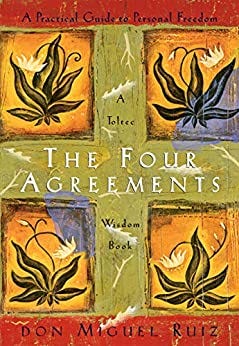

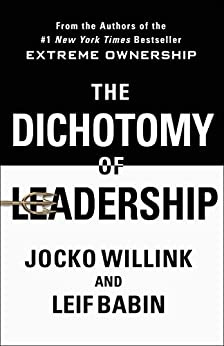
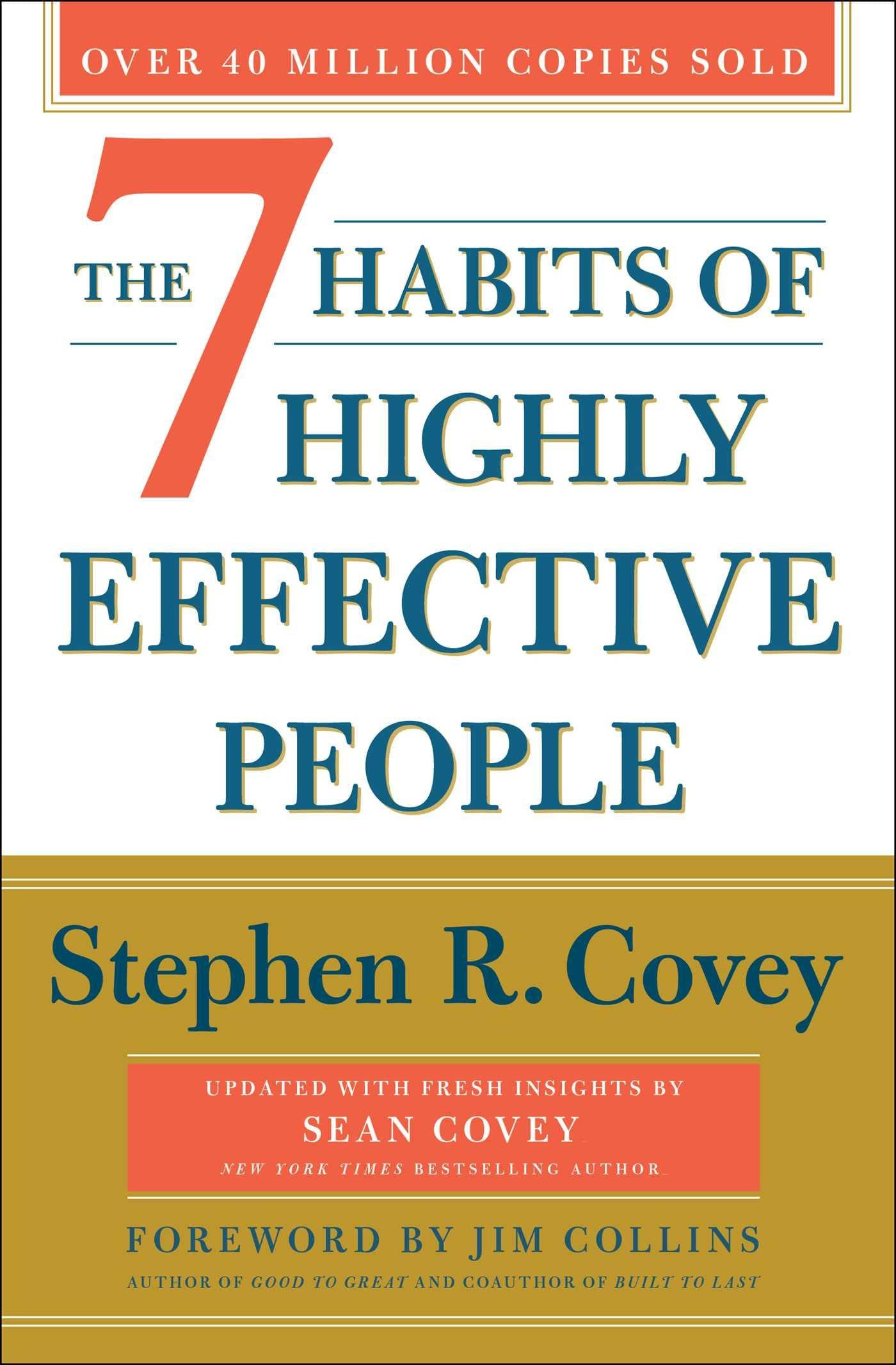
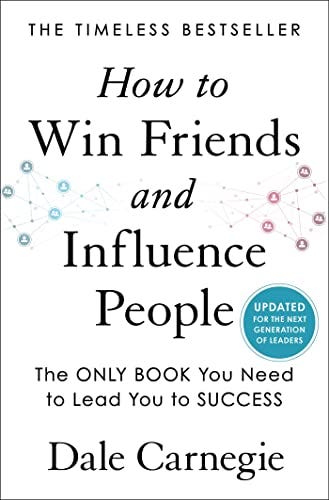
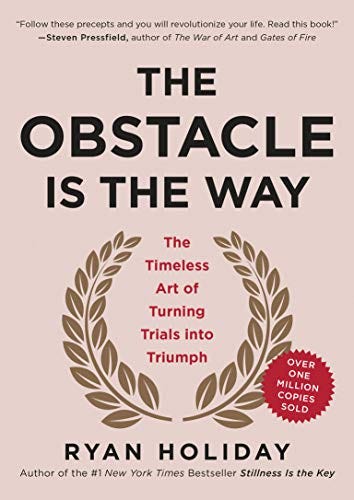
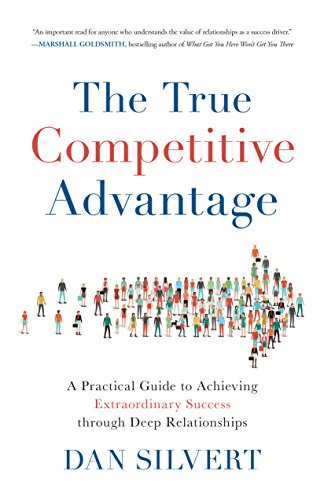
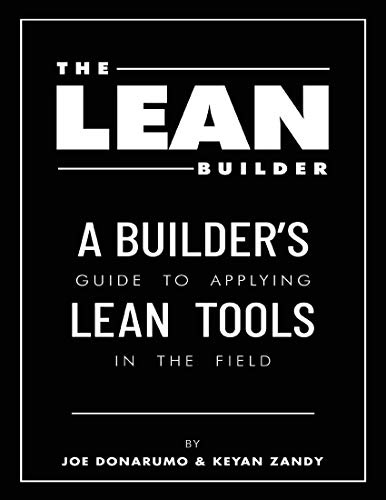
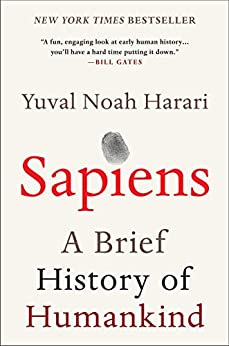
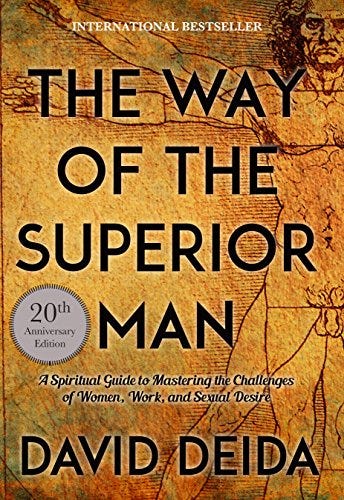
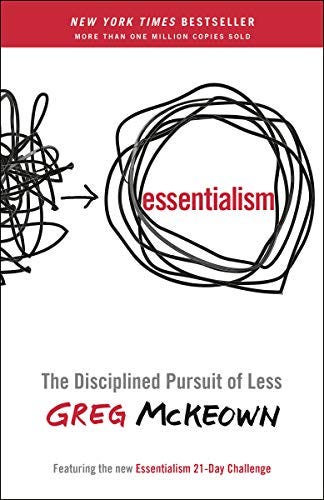
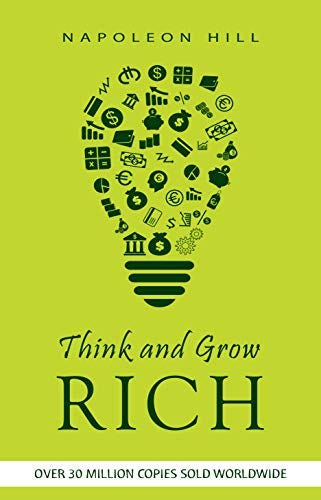
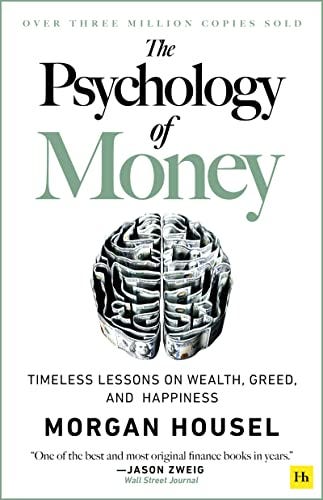
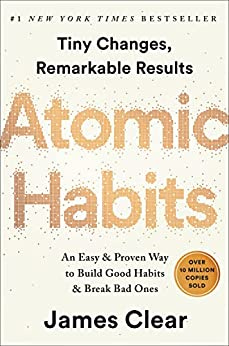
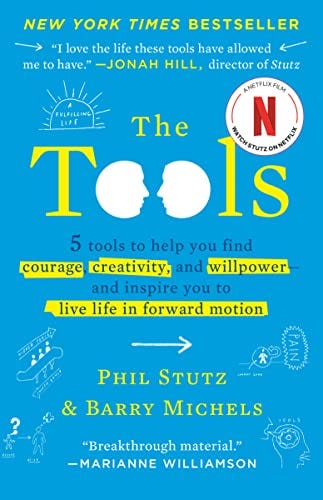
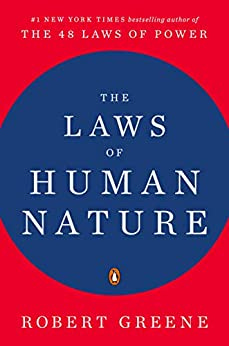
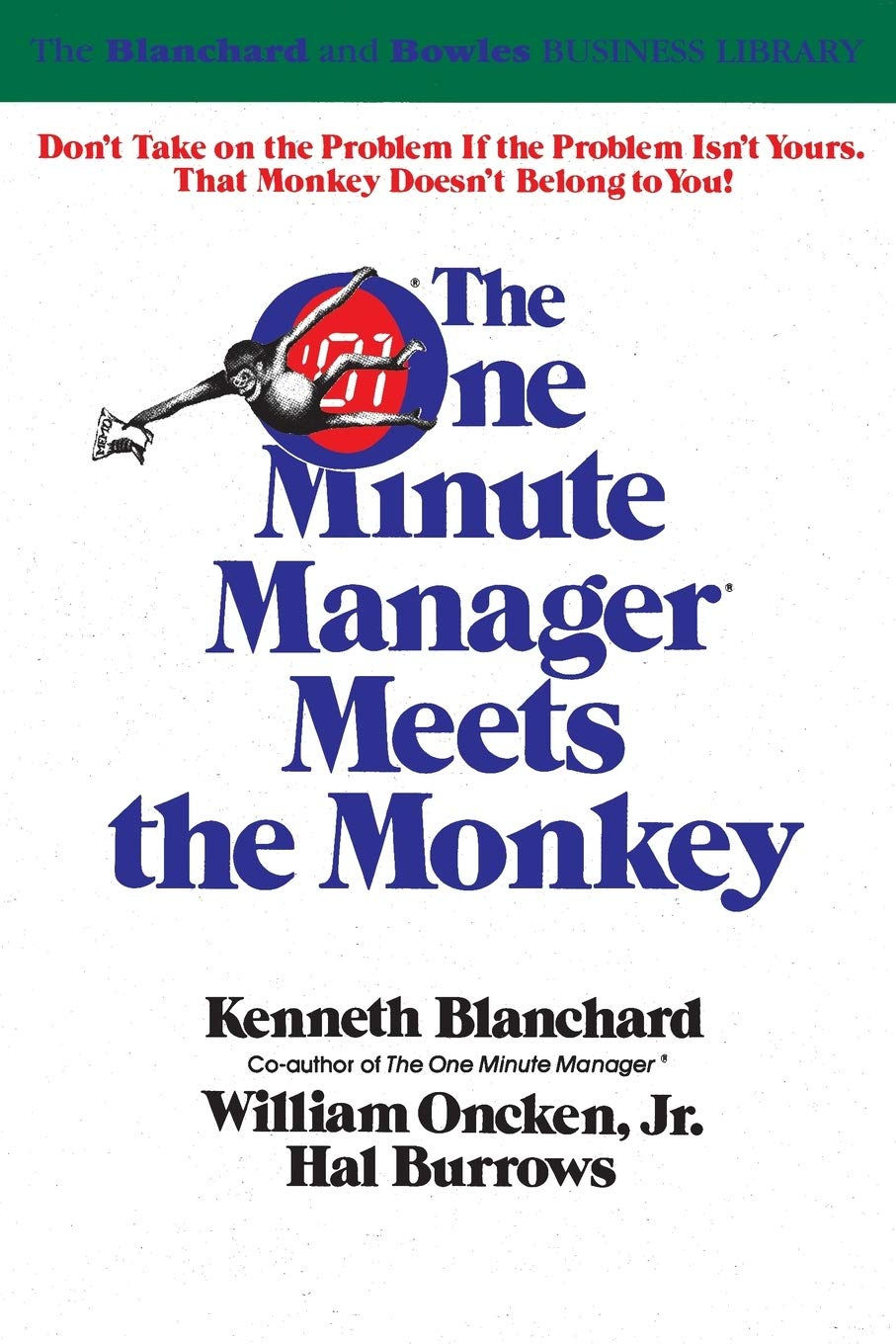
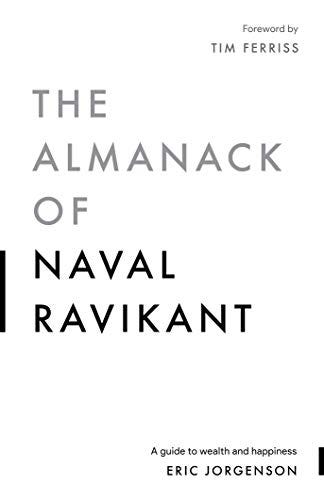
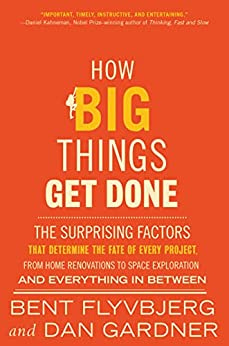

I love this format and what a Great list of books! I’ve only read about 1/4 of them but many more are on my hit list. I did learn a few new titles though. Thanks!